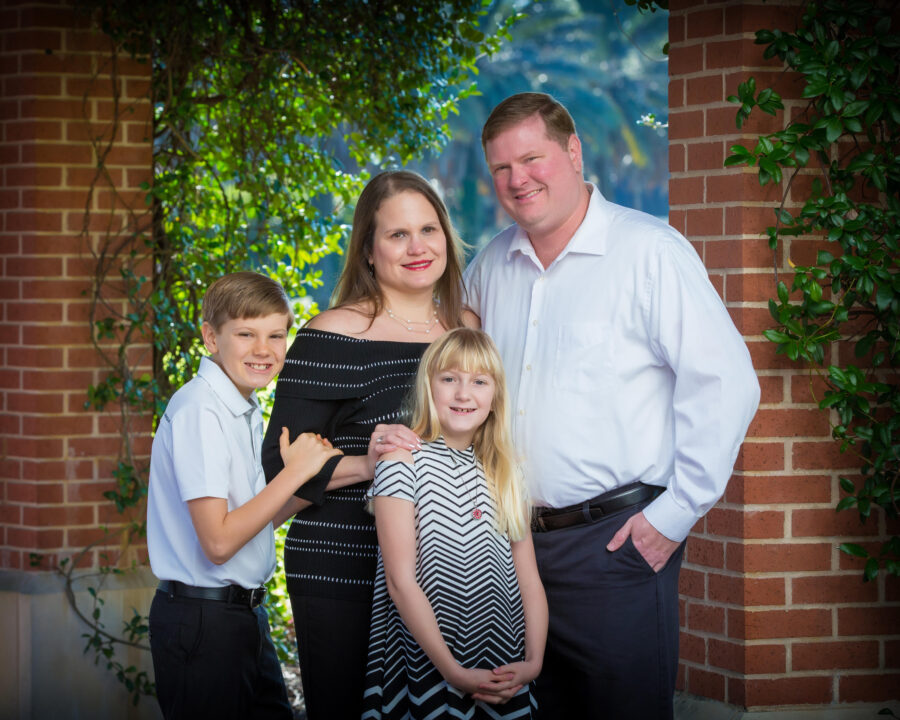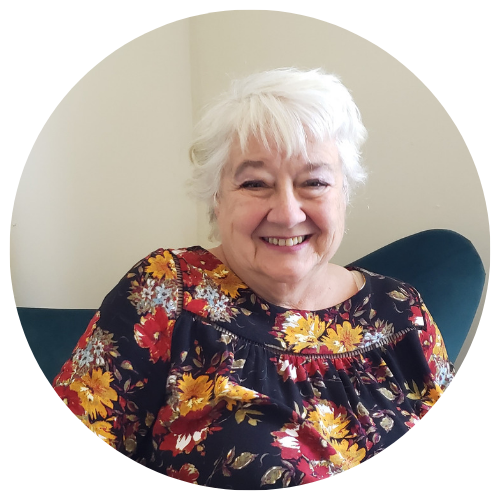
Parenting Blind
December 1, 2019
“Of course it’s hard, but only because being a parent is hard.”
Parenting is all about adapting, but for one parent being born blind just meant she had to adapt differently.
Decades ago, Jenice Heck met her husband Scott at her church’s youth group. Then, as a young adult, she left New Orleans to further her education and to live a “bit of life,” but she decided to return home when she was ready to settle down.
“When I got here, I wanted to help out with my old youth group,” she says. “Turns out, so did Scott. We were so happy to see one another again. People at that reunion said they could see the sparks fly between us.”
They have now been married for 16 years, and she’s raised two healthy and thriving children. She’s facing all the challenges parents face: sleepless nights, screaming tantrums, scary high fevers, and all the assorted scraps, bruises, and broken hearts along the way.
Jenice is simply a normal parent, who happens to be blind. She was born with Leber’s congenital amaurosis — an eye disorder that primarily affects the retina.
Not the Stereotypical Soccer Mom
Being a blind parent certainly comes with a few extra challenges, but according to Jenice, who is also Lighthouse of Louisiana’s vice president of Vision Rehabilitation Services, the most difficult logistical challenge to work around is finding access to practical and affordable transportation.
“You can’t be the stereotypical soccer mom driving your kids to ball games, field trips, ballet, and friends’ houses,” she says. “Sometimes you have to rely on others to pick them up or drop them off, and you and your children certainly have to become efficient using public transportation.”
She also says it’s essential to plan things out and try to be three steps ahead of any scenario. “If your kids say, ‘I need poster board for a project tomorrow,’ you just have to say, ‘sorry guys, we can’t go to Walmart now. You should have planned better,’” Jenice says.
Some visually-impaired parents even think not being able to drive has a few advantages. They believe their children are more independent, and they’re certainly not afraid of using buses or Uber. Walking places is healthy for them, and children learn the importance of paying more attention to their surroundings.
However, Jenice says that not being able to drive is a disadvantage, but she also knows owning, insuring, and maintaining a car can be a disadvantage, too.
Maternal Instinct
Some might think that the biggest challenge for a blind parent would be caring for an infant or toddler, but that wasn’t Jenice’s experience. “The infant part is easy,” she says, jokingly. “When I left them some place, they were still there when I got back.”
When the babies turn into toddlers, many parents put bells on their children’s shoes or get a pair of Pip Squeakers, shoes with little squeakers built into them. Some parents have found that pulling jogging strollers behind them is easiest, so they can still use their canes or guide dogs.
How does a blind parent effectively take care of a sick child? The answer is with the help of adaptive aids, things such as tactile markers on the medicine’s syringe, thermometers with audible responses, and medication directions in braille or with audible markings.
RESOURCES
“Twin Vision” books allow parents to participate in one of the joys of parenting: bedtime reading. The books have braille on one side with print on the facing page. Illustrations have braille captions.
The Blind Parents Connection podcast’s cover such topics as feeding, traveling, and back to school basics, which help blind parents with day-to-day parenting tasks; nfb.org.
The Hadley’s Family Education Program offers courses ranging from child development, independent living, braille reading and writing, and adjustment to blindness; hadley.edu.
Lighthouse Louisiana offers a variety of services to help individuals of all ages who are blind, visually impaired, and have other disabilities. It provides more than 6,000 services annually that help individuals regain and maintain independence; lighthouselouisiana.org.
Jenice believes one of the big advantages her blindness has afforded her children is that it increased their verbal skills. For example, instead of pointing at things, they had to tell her what they wanted.
“You also rely on what all mothers rely on — your maternal instincts,” she says. “Your instincts are based on a lifetime of experience, and they alert you that something you can’t see may be going on.”
She also says her children are extremely compassionate and keenly aware that being different or having a physical challenge doesn’t mean a person is less than others. Her children respect Jenice, and they do not take advantage of her by purloining a piece of cake or “borrowing” a bit of money.
“We decided it wasn’t right to take advantage of my mother’s disability, so we just don’t do things like that,” says her daughter Kaley, 11.
Her son Andrew is a 14-year-old freshman at Brother Martin High School, and he really sees his mom as just as capable as any of his friends’ moms.
“She’s not really that different,” he says. “When I look at her, I never see a mom with a disability. She cooks and cleans and helps me when I need help. I mean, Mom is Mom. ”
“The only things she can’t do are drive and check her makeup, but that’s it,” Kaley says.
Jenice thinks one of the hardest things for blind parents to do is to resist believing the people who say you can’t do it.
“Of course it’s hard, but only because being a parent is hard. You learn to adapt. To be a good parent you do what any parent does, you get things done, you get through it and you love your children. ”
 Pamela Marquis, a freelance writer, has lived in New Orleans for more than 40 years.
Pamela Marquis, a freelance writer, has lived in New Orleans for more than 40 years.

